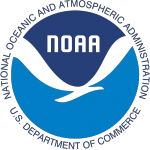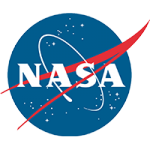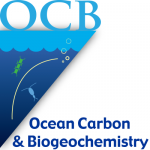The second U.S. Ocean Acidification Principal Investigators' Meeting was held in Washington, DC at Gallaudet University's Kellogg Conference Center on September 18-20 2013. This three-day meeting brought together the U.S. OA research community to assess the state of OA science nationally and to identify knowledge gaps and opportunities for collaborations that will accelerate OA research in the future.
This meeting offered an opportunity for the scientific community to help shape U.S. national OA research efforts as they developed. In addition to poster sessions to showcase scientific results, meeting activities included numerous panel, plenary, and breakout discussions designed to explore how current U.S. OA research and organizational support fit together, and to identify where greater synergies can be encouraged. Meeting attendees took an active role in considering the current state of the science and planning future opportunities for the research community as a whole. See the agenda below for more detail.
Specific meeting goals
The organizing committee laid out five primary goals for the meeting:
- Strengthen scientific collaboration and minimize duplication of efforts
- Synthesize current state of knowledge, identify major uncertainties, and discuss the way forward
- Promote effective data management and sharing
- Explore how to apply results of OA studies to the world outside the lab
- Identify outstanding research questions
Motivation
The OCB Ocean Acidification Subcommittee hosted this second OAPI meeting to bring the OA community together and assess the direction of the entire U.S. OA research community, now that many research projects have been under way for some time. As with the first OAPI meeting in 2011, this meeting was intended to maximize all outcomes of the research by placing ongoing research efforts into a greater context that looks forward towards scientific and organizational challenges emerging from the work.
Meeting Archive
- Agenda with Talks (final agenda PDF)
- Breakout and discussions
- Participant Information
- Poster Information
Tuesday, September 17, 2013
19:00-20:00 Ocean Tapas: Small Bites of Big OA Issues (COMPASS)
This fast-paced discussion among leading journalists and scientists on the latest findings, thorniest challenges, and social relevance of ocean acidification science will highlight hot topics and jump start conversations about communicating your science at the OAPI meeting and beyond. Join us for this fun event and the chance to meet and mingle with the journalists at the no-host reception to follow.
Wednesday, September 18, 2013
8:45 Welcome (Kim Yates, USGS; Jeremy Mathis, NOAA PMEL)
9:00 Session 1: Scientific Themes in OA research (Chair: Yates). Brief overview talks of the state of the science.
- Observing and Measuring, Chris Sabine (NOAA PMEL)
- Technical Limitations and Need, Todd Martz (SIO)
- Linking Measurements to Processes, Bruce Menge (OSU)
- Methodological Developments, Gretchen Hoffman (UCSB)
- OA as One of Many Issues, Joan Bernhard (WHOI)
- Modeling, Forecasting, Conveying Uncertainty, Francis Chan (OSU)
11:00 The Changing 'Climate' in Science Journalism: Adaptation and Mitigation Strategies, Cheryl Dybas (NSF)
11:30 Lunch workshop: Delivering a Clear Message (COMPASS)
In this 1.5-hour workshop during the OAPI meeting, you will learn how to talk about your science - and why it matters - in clear, lively terms. We’ll help you replace unnecessary details with an accurate message that will resonate with your audience and leave them wanting more. Your takeaway will be the beginnings of a 30-second elevator speech that you can use anytime and anywhere.
13:30 Session 3: A Growing National OA Research Community (Chair: Jeremy Mathis). Agencies discussed their activities regarding OA, coordination, and future plans in short talks and a panel.
- David Garrison (NSF) PDF
- Libby Jewett (NOAA) PDF
- Paula Bontempi (NASA)
- Kenli Kim (State)
- Mary Boatman (BOEM)
- Paul Cough (EPA)
- Susan Russell-Robinson (USGS) PDF
- Bret Wolfe (FWS)
16:00 Session 4: Data Management (Chair: Sarah Cooley, Jan Newton)
- Krisa Arzayus & Hernan Garcia (NODC),“Data Management for the Long Run: OA Data Needs for Today and Tomorrow”
- Panel discussion: “Can we get what we want AND what we need?”
17:30 Poster Session
Thursday, September 19, 2013
8:45 The OA X Prize and Q&A, Paul Bunje (X Prize)
9:15 Introduction to breakouts (Yates/Mathis)
9:30 Breakout period 1: Parallel small-group discussions. Brad DeYoung slides (Breakout 10; Gamechangers & Black Swans)
11:30 Breakout groups report back in plenary; discussion (Yates/Mathis)
14:00 Breakout period 2: Parallel small-group discussions
16:00 Breakout groups report back in plenary ; discussion (Yates/Mathis)
17:30 Posters
Friday, September 20, 2013
8:45 Plan for the day (Yates/Mathis)
9:00 Breakout period 2: Wrap up and plan next steps
11:00-12:30 Session 4: Ways forward, part 1 (OCB OA Subcommittee)
- From the science up: Integrating knowledge, research, and management, Holly Greening (TBEP)
- Plenary discussion of priority needs and ways forward
14:00 Ways forward, part 2 (OCB OA Subcommittee)
- Compile messages from morning discussion, plus breakout discussion findings.
- Identify next steps and recommend community priorities
16:00 Adjourn
Breakouts and discussions
The meeting relied heavily on discussion and feedback from the OA research community. Day 2 and parts of Day 3 were dedicated to parallel breakout sessions, in which small groups of attendees consider issues relevant to all subdisciplines. (Breakout PDF)
The ten breakouts include:
1. Characterizing the natural system
Leads: Simone Alin (NOAA), Rusty Brainard (NOAA)
Given the advances made in the past two years in setting up a global ocean acidification observing network (GOA‐ON) through the 2012 and 2013 workshops, discussants will extend the global conversation to consider: 1) the chemical and physical long‐term monitoring framework needed to more robustly attribute ecological and ecosystem changes to ocean acidification; 2) sufficient spatial and temporal sampling approaches for biological processes to effectively inform society about the socio‐ecological impacts of ocean acidification from community to ecosystem scales; and 3) necessary chemical and ecological components for two or three example long‐term monitoring programs in different ecosystem types. Discussion will explore what knowledge is attainable in the short term (1‐5 years) from existing programs, resources and methods, enhanced by new collaborations, and what knowledge is needed from the long‐term observations to best inform policy decisions to optimize societal benefits.
2. Linking measurements to processes
Leads: Andreas Andersson (SIO), David Kline (SIO)
Discussants in this session will focus on the numerous challenges associated with using experimental outcomes to describe processes in situ. The conversation will focus primarily on: 1) linking experimental results and measurements to the natural environment, especially given biogeochemical feedbacks; 2) understanding the responses of organisms to ocean acidification in the context of natural variability; and 3) assessing ocean acidification’s effects on ecosystems and foodwebs. Insight will be sought from studies of other environmental variables, and consideration of physiological tolerance to changing mean or extreme conditions
3. Technical developments
Leads: Kendra Daly (USF), Todd Martz (SIO)
Discussants will begin by reviewing the results of a brief community survey focusing on usage trends and challenges associated with sensors and carbonate chemistry equipment. Then, the discussion will explore 1) needs associated with development of new techniques, sensors, and equipment; 2) possibilities of developing or enhancing sensor networks, particularly with an eye toward coordination and intercomparison; and 3) additional tools needed, such as analytical facilities, shared instrument repositories, or computing tools. In each case, identified needs will be matched with estimates of the type and magnitude of obstacles (e.g., time, cost, manpower, etc.) facing them.
4. Methodological and experimental developments
Leads: Dwight Gledhill (NOAA) & Gretchen Hofmann (UCSB)
As ocean acidification science has advanced, so too has the complexity of our understanding. Heterogeneity in both the dynamics of ocean acidification and organism responses has revealed a more nuanced and intricate narrative than previously imagined. Discussants in this session will focus on new and developing methods of ocean acidification experimental science that can 1) better emulate natural variability in carbonate dynamics; 2) incorporate multi‐stressor impacts; 3) elicit improved insight into potential adaptive capacities; and 4) better utilize data from biogoechemical observing assets in experimental design.
5. Uncertainty
Leads: Sergio Signorini (NASA) & Shallin Busch (NOAA)
Ocean acidification science includes many widely acknowledged uncertainties, yet incorporating uncertainty fully into the science is still at the early stages. Discussants in this session will focus on 1) how we can make measurements to allow us to estimate uncertainty adequately; 2) how we can best incorporate uncertainty into models of all types (e.g. numerical to mental); and 3) how we can best talk about uncertainty when we convey our results. This wide‐ranging interdisciplinary session will touch on topics ranging from statistics and modelbuilding to communication.
6. OA as one of many issues
Leads: Joe Salisbury (UNH) & Denise Breitburg (SERC)
Discussions about ocean acidification often point out that it is just one of many natural and anthropogenic processes affecting marine life, especially in the coastal zone. For instance, temperature increase, hypoxia, land use changes, ocean circulation, and disease also add pressure to marine ecosystems. These processes may combine synergistically or antagonistically, yet their full effects are not yet known. This discussion will explore the 1) multiple causes of acidification; 2) the effects of multiple stressors when one is ocean acidification; and 3) temporal and spatial scale issues and variations among systems related to multiple stressor effects.
7. Designing large multidisciplinary research efforts
Leads: Kim Yates (USGS), Carol Turley (PML)
Understanding ocean acidification increasingly requires interdisciplinary work among chemists, biologists, physicists, and geologists. Calls for multidisciplinary studies are growing, urging consideration of marine changes in the context of global processes, human development, and more. To design and implement large multidisciplinary efforts, a high degree of coordination must be achieved. This session will consider 1) what the key elements of successful multidisciplinary research efforts are, especially those that could serve as analogs to future efforts to study ocean acidification; 2) how to implement such programs together organizationally; and 3) how to shape multidisciplinary projects once underway. Discussants will consider other successes and failures, and they will especially focus on temporal and spatial scale coordination.
8. Other theories to inform OA studies
Lead: Cathy Pfister (U. Chicago)
Ocean acidification is not the first large‐scale environmental challenge that has been studied intensively, but as oceanography is a relatively young field, most prior challenges have been in terrestrial and atmospheric environments. Discussants in this session will consider outcomes of other environmental impacts studies, especially those in other environments which may be unfamiliar to the ocean science community, to consider 1) how they can inform ocean acidification studies; 2) whether there are generalizable theories (e.g. spatial ecological principles, etc.) that can be borrowed from other disciplines and applied to ocean acidification, and 3) whether analytical or theoretical frameworks exist to consider this information.
9. Organizational needs & decisionmaking
Leads: Sarah Cooley (WHOI), Libby Jewett (NOAA)
Discussants in this session will consider the intersection between the ocean acidification research community and decisionmakers/science programs. The conversation will consider 1) what the research community is expected to do and by whom; 2) what information different groups want from researchers; and 3) what activities can be undertaken to help science respond to these needs, including new science focuses, capacity building, and stronger coordination. Discussants will ideally include representatives from the research community as well as the decisionmaker and science‐agency communities, and will include a mix of early and later career individuals.
10. Gamechangers & black swans
Leads: Jeremy Mathis (NOAA), Dick Feely (NOAA)
Discussants in this session will be encouraged to think broadly about possible developments that could suddenly accelerate or end ocean acidification research. The discussion will consider: 1) scientific issues such as tipping points, geosolutions, other major stressors (e.g., hypoxia, overfishing); 2) “mainstreaming” of ocean acidification research into overall marine science, as the community becomes larger and targeted research support declines; and 3) communication about the research in the face of increasing politicization of ocean acidification.
Overarching breakout session goals
- Consider the state of ocean acidification knowledge in an interdisciplinary context: What do we don’t we know?
- Start synthesizing trends and themes in ocean acidification science across environments (e.g., reef, coastal, polar, etc.) and processes (e.g., physical, chemical, or biological)
- Explore how enhanced interdisciplinary activity (e.g., collaboration, knowledge exchange) can address knowledge gaps
- Identify logical short‐term steps and longer‐term goals for the research community
Each breakout session’s discussion laid the groundwork for a synthesis paper in an Oceanography Magazine Special Issue: Emerging Themes in Ocean Acidification Science in June 2015.
Participant Information
2nd OA PI Meeting 2013 Participant List
Poster Information
2nd OA PI Meeting 2013 Poster Abstracts
Workshop Sponsors







